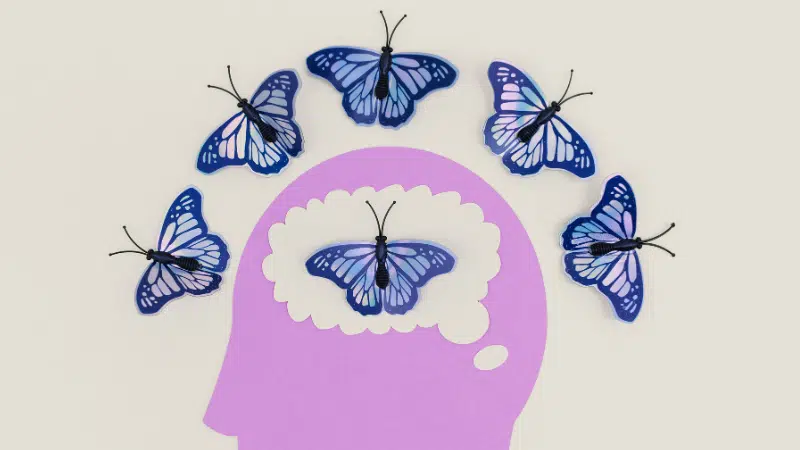With so much on their plates, artists often push the subtle signs of mental strain to the back burner. Again and again, there’s always something more urgent, a lyric that needs reworking, content that needs planning, merch that needs sorting. It’s always “just one more thing” before mental health gets a moment of attention. The problem? By the time burnout rears its ugly head or a mental breakdown is imminent, they’ve already waited too long… and the crash-out always reflects that.
As an artist manager or label rep, it’s your job to help make sure the artists you work with never reach that point. That doesn’t mean having all the answers; it means setting a tone of compassion, prioritizing people over deadlines, and creating space for artists to show up as human first, musician second. If you’re looking for tips on how to actively support your artists’ mental health, not just in moments of crisis, but as a regular part of how you work, this post is for you. ❤️🩹
How to Support Artist Mental Health as a Label or Manager
Set the Tone: Compassion Over Perfection
Artists are constantly under pressure to be “on”, to post, to perform, to produce. But chasing perfection no matter the costs sets everyone up for failure. As a manager or label, you set the tone. It’s important you prioritize progress over perfection, and model a work culture where being human is more important than being flawless. Normalize things like taking breaks, asking for help, or saying “I’m just not okay right now.” This kind of culture doesn’t just support mental health, it builds trust. Recognizing that mistakes, setbacks, and learning moments are all natural parts of growth is one of the best things you can do as a manager.
Artists who feel safe sharing their struggles are more likely to reach out for support before things get too overwhelming. When you make space for vulnerability, you’re not only preventing burnout, you’re also reinforcing the strength that comes from honesty and mutual respect.
Foster Open, Safe Dialogue Around Stress and Burnout
Burnout is one of the biggest issues creatives face when it comes to managing mental health. As a manager or label, one of the best ways you can help with this is to encourage open dialogue about mental health in a supportive, judgment-free way. You can do this by offering regular check-ins, whether weekly or more informally, to let them know it’s okay to be open about whatever they’re feeling, whenever they feel it.
Artists are more likely to reach out when they feel heard and supported, preventing small issues from snowballing into bigger ones. The reality is that an artist’s mental health has a direct impact on their work and their connection to the business. A healthy, supported artist is more likely to deliver their best work, meet deadlines, and contribute positively to the overall brand. By fostering an environment where mental health is prioritized, you help ensure that your artist can continue to thrive creatively, which ultimately benefits everyone involved.
Build Space for Rest and Creative Downtime
In this fast-paced world of music, it’s easy to fall into the trap of constant productivity, thinking that every moment has to be filled with work or creativity. But the truth is, rest is essential for sustainable success. Just as a car needs regular maintenance to perform at its best, an artist needs time away from the grind to recharge, reflect, and reignite that creative spark.
As a manager or label, it’s important to build space for rest into your timelines and schedules. This means setting realistic deadlines, allowing time for breaks, and creating periods of downtime where artists can step back without feeling guilty. Without this, burnout isn’t just possible, it’s inevitable.
Encourage your artists to take time off when needed, whether it’s stepping away from social media, taking a mental health day, or simply stepping outside for a walk. Incorporating these breaks into their workflow from the start makes it easier to prioritize mental health and avoid the crunch-time mentality. When they return to their work, they’ll have fresh energy, new ideas, and a healthier mindset, leading to better music, stronger performances, and a greater connection to their art.
——
🗡️ Want to sharpen your other skills? Check these out…
How To Find The Right PR Firm as an Independent Musician
The Best Release Checklist for Independent Musicians
Basic Accounting Terms Every Music Entrepreneur Should Know
Publishing 101 for Indie Labels: What You Need to Know to Do It Right
——
Educate Your Team on the Signs of Mental Distress
You’re not expected to be a therapist, but it’s crucial to recognize when your artist is struggling. Being aware of mental health warning signs like withdrawal, irritability, or a lack of motivation helps you catch issues early, before they escalate.
This isn’t just about you checking in with the artist. It’s about empowering your whole team to notice subtle changes and act with compassion. By educating everyone on the signs of stress or burnout, you create a supportive network that ensures artists feel seen and heard, not judged or pressured. By staying vigilant and encouraging open dialogue, you can prevent small issues from turning into major setbacks, benefiting both the artist and the overall creative process.
🧠 If you’re looking for resources to help you educate your team, Mental Health First Aid Training is a great program that teaches how to recognize and respond to mental health issues. Plus, its available both in-person and online.
Understanding & Respecting Boundaries
As a manager or label, your role includes being in tune with the balance between professional demands and personal limits. Artists need to feel empowered to say “no” or set boundaries without fear of negative consequences. This means refraining from overloading them with work, constantly reaching out for content, or pushing them beyond their comfort zones for the sake of deadlines or expectations.
That’s why it’s so important to have open conversations about what those boundaries look like. Whether it’s protecting personal time outside of tour schedules, limiting social media demands, or being mindful of how much work they’re expected to take on at any given time, respecting their space builds trust and promotes mental health. Not only does this contribute to a healthier relationship, but it also leads to more authentic, inspired work.
Good Mental Health = Long-Term Success
As a manager or label, you’re in a unique position to lead by example and cultivate an environment where mental health is prioritized as much as career growth. It’s not about perfection; it’s about fostering a space where artists can thrive, both personally and professionally. And by integrating these practices into your workflow, you’re not only supporting the individual artist, you’re ensuring a healthier, more sustainable industry overall.
This industry is known for being cut-throat, fast-paced, demanding, and everything in between. We’ve been taught that you can always do more, breaks are for the weak, and that the rat race goes until you can’t go anymore… but all this is changing. The effects of these unhealthy habits are undeniable. The more you work yourself to the bone, the less all this becomes about the passion or the love of the game. It breeds short-term stardom, encouraging artists to push as hard as possible until it’s not physically possible to push any longer.
But the truth is, sustainability in this industry isn’t about the constant grind; it’s about balance. As a manager or label, it’s on you to help shift the narrative, leading by example and showing that true success is about longevity, creativity, and a thriving mental state. When artists are mentally well, they are more capable of creating music that resonates, staying connected with their fans, and building lasting careers.
By prioritizing mental health and establishing a culture of support, you’re not just preventing burnout; you’re creating an environment where artists (and the industry as a whole) can continue to grow and succeed for years to come…
This shift in mindset is exactly what the industry needs, and it starts with you.
Good luck!
🫶



